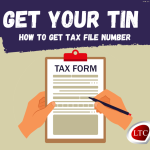Dubai, the crown jewel of the United Arab Emirates (UAE), is a global hub for business, tourism, and innovation. Often perceived as a tax haven, Dubai’s tax system is more nuanced than a simple absence of taxes. This article delves into the intricacies of Dubai’s tax landscape, outlining the key taxes applicable to individuals and businesses, their rates, and exemptions.
Understanding the UAE Structure
Dubai is one of seven emirates that form the UAE. While each emirate possesses some level of autonomy, taxation primarily falls under federal jurisdiction overseen by the Federal Tax Authority (FTA). Therefore, to understand Dubai’s tax system, we need to examine the broader UAE tax framework.
Taxes Applicable in Dubai
Here’s a breakdown of the primary taxes levied in Dubai:
- Value Added Tax (VAT): Introduced in 2018, VAT is a consumption tax applied to most goods and services at a standard rate of 5%. It’s a broad-based tax levied at each stage of the supply chain, ultimately borne by the end consumer. Specific categories like basic necessities, education, and healthcare are exempt from VAT. Tourists can also claim VAT refunds on eligible purchases.
- Corporate Tax: A recent addition, the UAE implemented a federal corporate tax in June 2023. This tax applies to the net profits of businesses and commercial activities, with a standard rate of 9%. However, exemptions exist for specific entities, including:
- Businesses with a total turnover below AED 375,000 (around $102,100) annually.
- Qualifying public benefit entities.
- Qualifying investment funds.
- Businesses operating exclusively within certain Free Zones (explained later).
- Excise Tax: Implemented in 2017, excise tax is an indirect levy on specific goods deemed harmful to health or the environment. This includes tobacco products, sugary drinks, and certain types of electronic cigarettes. Excise tax rates vary depending on the product category.
Taxes Not Applicable in Dubai
- Personal Income Tax: Unlike many countries, the UAE, and consequently Dubai, does not levy any personal income tax on salaries or wages earned by individuals. This makes Dubai an attractive destination for expatriate workers seeking tax-free income.
- Capital Gains Tax: There is currently no capital gains tax in Dubai or the wider UAE. This applies to profits made from selling assets like stocks, property, or other investments.
Free Zones and Tax Benefits
Free Zones are designated areas within Dubai (and other emirates) that offer specific tax incentives to attract businesses. Companies operating within designated Free Zones may be exempt from corporate tax for a specific period, typically 50 years. However, to qualify for these exemptions, companies must meet certain criteria, such as generating a minimum proportion of their income from outside the UAE mainland.
Social Security Contributions
While not technically a tax, social security contributions are mandatory deductions from employee salaries in the UAE. The contribution rate is 17.5%, with employers contributing 12.5% and employees (who are not UAE nationals) contributing the remaining 5%. This social security scheme provides benefits like pensions, unemployment insurance, and healthcare for eligible individuals.
Tax Registration and Compliance
Businesses exceeding the VAT registration threshold (currently AED 375,000 annually) must register for VAT with the FTA. Companies subject to corporate tax will also need to register with the FTA. The FTA website provides detailed information on registration procedures and compliance requirements.
The Future of Dubai’s Tax Landscape
The introduction of corporate tax in 2023 signifies a shift in the UAE’s tax policy. While the rates remain relatively low compared to many developed nations, future changes or additional tax types cannot be entirely ruled out. Dubai’s commitment to attracting foreign investment suggests a balanced approach to taxation will likely continue.
Conclusion
Dubai’s tax system offers a competitive advantage for individuals and businesses. The absence of personal income tax and capital gains tax, coupled with potential exemptions for companies operating in Free Zones, makes Dubai an attractive location. Understanding the applicable taxes, their rates, and registration requirements is crucial for anyone considering living, working, or investing in Dubai.
Additional Considerations
This article provides a general overview of Dubai’s tax system. It’s important to consult with qualified tax professionals for specific advice regarding your individual circumstances. Tax laws and regulations can change over time, so staying updated on the latest developments is recommended.






![VAT & SVAT Registration requirements for Tea, Rubber, and Coconut Suppliers – SEC/2024/E/01 [04 Jan 2023]](https://lankataxclub.lk/wp-content/uploads/2024/02/Can-Tea-Rubber-and-Coconut-Suppliers-get-SVAT-150x150.jpg)





